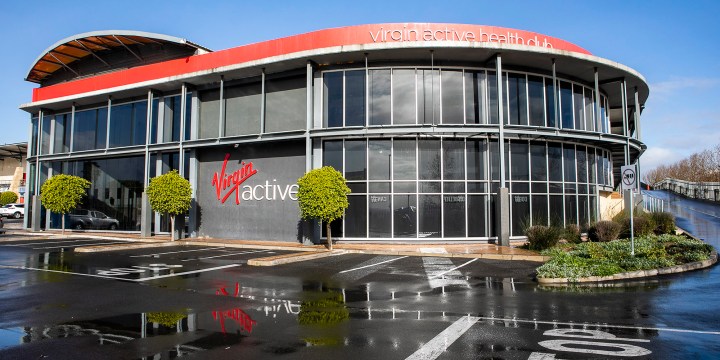BUSINESS MAVERICK
Fit for business: Virgin Active is likely to survive Covid lockdown

Along with restaurants, hotels and bottle stores, Virgin Active gyms head back into lockdown. Unlike many of the former, though, the gym is likely to survive, thanks to a parent with deep pockets and faith in the business.
Unlike those businesses that were able to retreat into the digital realm, it has been a tough year for fitness group Virgin Active. The chain, which also has health clubs in the UK, Italy, Australia, Singapore and Thailand, has seen its group-wide membership drop by 25% since December 2019.
Given that gyms were closed for between six and nine months of the year (and that members were not billed during this time), revenue dropped in sync – from as little as 11% in Singapore, to 46% in South Africa and 60% in the UK.
Despite Virgin Active earnings falling precipitously by £155.5-million to record a loss of £13.1-million, its parent, Brait, managed to recapitalise the UK Virgin Active business and reduce net debt slightly to £390.2-million.
But having survived the loss of 24 months of trading across its territories, the thought of another period of lockdown incenses Brait CE Peter Hayward-Butt.
“It is very frustrating… this decision [to lock down gyms] is myopic, but at least the management team now has this down to a fine art,” he says.
Past agreements with landlords will come into effect, members will automatically get a fee reduction for the period the gyms are closed and staff will have to grin and bear it on lower salaries.
“Fortunately there is decent liquidity in the business, but as we don’t know how long this could go on for, we will manage our operations carefully.”
The Ethos team, of which Hayward-Butt is a part, could not have known that they were in for a year or two of Covid-19 lockdowns when they took over the Brait advisory contract in March 2020, along with its portfolio of poorly performing and mispriced assets, including New Look, Iceland Foods, Virgin Active and the better-performing Premier Foods and Consol Glass.
They wasted no time in revaluing and reassessing the portfolio. The overall group net asset value has been reduced from R18.4-billion in March 2020 to R16.4-billion in March 2021, or from R8.27 per share to R7.90 per Brait share. The share is currently trading at a heavily discounted R2.80. Within this, the value of Virgin Active has been written down from R9.35-billion to R7.97-billion.
Brait’s 35% stake in Iceland Foods, a suboptimal performer, was sold to management in mid-2020, and New Look, which had been revalued to almost zero, is clawing its way back after costs were cut, e-commerce prioritised and a Company Voluntary Arrangement (CVA) process endured. This saw rentals adjusted to a turnover-based fee.
Virgin Active UK (under which the other territories fall) was also restructured through a similar CVA court process, which was completed in May 2021. This saw all the stakeholders – the landlords, the licence provider and the banks – agree to adjusted terms. Brait injected R767-million to recapitalise the balance sheet, together with the Virgin Group which added its proportional share – it owns just over 20% of the business.
Generally landlords were supportive – in Australia, South Africa and Italy – but not in the UK. “The UK has archaic land laws that were put in place to support the landed gentry. The landlords did not negotiate, but it’s telling that Virgin’s two biggest landlords did not appeal the court decision.”
That said, Virgin’s international business is now on a sound footing coming out of Covid, he says.
All of the gyms, with the exception of Thailand and Singapore, which are expected to reopen this week, have reopened and customers are returning.
“But it’s a long way back for that business in Europe.” This is also the case in South Africa where management estimates that it will take another two years to restore the business to 2019 levels.
Overall, “we are forecasting that it will take Virgin Active two years to return to an Ebitda of just over £100-million… £105 million to be exact”.
“There is a lot of water to flow under this bridge still, and that figure is still 30% off the £143-million the group earned in 2019, but the South African business is cash-flow positive and we are optimistic that we will get there.”
Just as long as the two-week lockdown succeeds in its aims – reducing the burden on South Africa’s overstretched hospital network. DM/BM


















 Become an Insider
Become an Insider
I wonder how many of the 0.1% deaths were contracted in gyms?
Probably none. In my experience people are very careful in the gyms. There is adequate physical distancing and a whole lot of sanitising happening all the time.
I stopped going to the Virgin Active at 14th Avenue on the West Rand because so many of the members were not distancing and wearing masks.